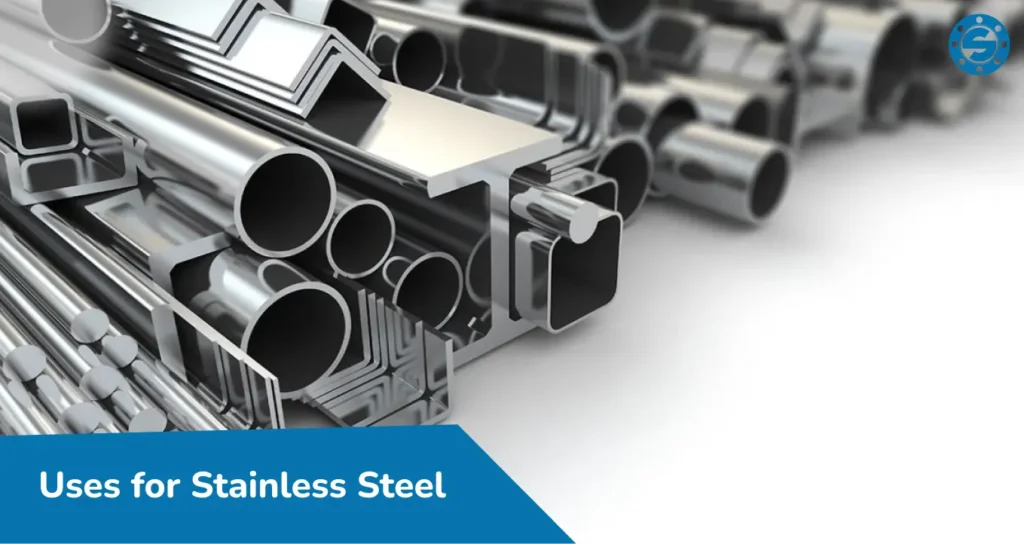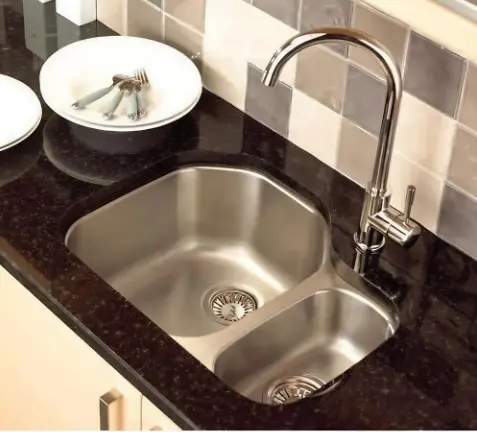Uses for Stainless Steel

Stainless steel is fully recyclable, easy to sterilize, and widely used in various applications. In our daily lives, we encounter products made from stainless steel all the time. From the kitchen to the road, at the doctor’s office, and in buildings, stainless steel is truly omnipresent.
In this blog, I will explore the common characteristics of this versatile metal, along with the products and applications where it plays a crucial role.
What’s the Difference Between Stainless and Regular Steel?
The key difference between stainless steel and regular steel lies in their corrosion resistance. Unlike regular steel, which easily rusts or stains when exposed to water, stainless steel is designed to resist these issues. However, it’s important to note that stainless steel isn’t entirely stain-proof; it can still be vulnerable to staining in environments with low oxygen, high salinity, or poor air circulation.
Additionally, both types of steel are poor conductors of electricity. However, stainless steel has significantly lower electrical conductivity compared to metals like copper, which is known for its high conductivity. This property affects their applications in various industries.
What Are Stainless Steel Products and Applications?

Stainless steel is widely used in applications that benefit from its unique properties and resistance to corrosion. This versatile alloy is often processed into coils, sheets, plates, bars, wire, and tubing. Here are some examples uses for stainless steel:
Culinary Uses:
- Kitchen Sinks: Durable and easy to clean, stainless steel sinks are a popular choice in kitchens.
- Cutlery: Knives, forks, and spoons made from stainless steel are resistant to rust and staining.
- Cookware: Pots and pans made from stainless steel are known for their heat distribution and durability.
Medical Applications:
- Surgical Tools: Stainless steel is commonly used for instruments like scalpels and scissors due to its sterility and strength.
- Hemostats: These devices, used to control bleeding, are often made from stainless steel.
- Surgical Implants: Replacement joints and dental crowns benefit from stainless steel’s durability and corrosion resistance.
Architectural Uses:
- Buildings: Stainless steel is featured in structures like the Chrysler Building, adding both strength and aesthetic appeal.
- Bridges and Monuments: Its durability makes it suitable for long-lasting structures and sculptures.
- Airport Roofs: Used for its weather resistance and low maintenance.
Automotive and Aerospace Applications:
- Auto Bodies: Stainless steel is utilized for its strength and corrosion resistance in car manufacturing.
- Rail Cars and Aircraft: Its lightweight and strong properties make it ideal for transportation vehicles.
Stainless steel’s combination of strength, hygiene, and aesthetic appeal makes it a preferred choice across various industries.
Is Stainless Steel Corrosion-Resistant?
Stainless steel is generally corrosion-resistant, particularly the 300 series. These grades can withstand exposure to weaker bases, such as ammonium hydroxide, even in high concentrations and temperatures. However, they are susceptible to etching and cracking when exposed to stronger bases like sodium hydroxide.
In damp or acidic environments, stainless steel usually holds up well, while other metals may experience galvanic corrosion. This means that while stainless steel is robust against many corrosive substances, its resistance can vary depending on the specific conditions and chemicals it encounters.
What Type of Stainless Steel Does Solitaire Steel Offer?
Solitaire Steel regularly stocks stainless steel grades AISI 301 and AISI 302/304 in sheet and coil forms. If you need a different grade, feel free to reach out, as we may have additional options available.
301 Stainless Steel Features
AISI 301 is known for its ability to harden quickly through cold working. It offers excellent resistance to corrosion and heat, making it suitable for applications that involve drawing, stamping, or forming.
302/304 Stainless Steel Features
AISI 302/304 is an austenitic grade that provides even better corrosion and heat resistance than 301. It’s ideal for applications involving laser cutting and etching processes, and it is sometimes referred to as A2 stainless.
Summary of Stainless Steel Uses
Stainless steel is a versatile material known for its corrosion resistance and strength, making it ideal for a wide range of applications. Common uses include kitchen items like sinks and cutlery, medical tools such as surgical instruments and implants, architectural features in buildings and bridges, and components in the automotive and aerospace industries. Its durability and hygiene properties make stainless steel a popular choice across various sectors, from culinary to construction.


